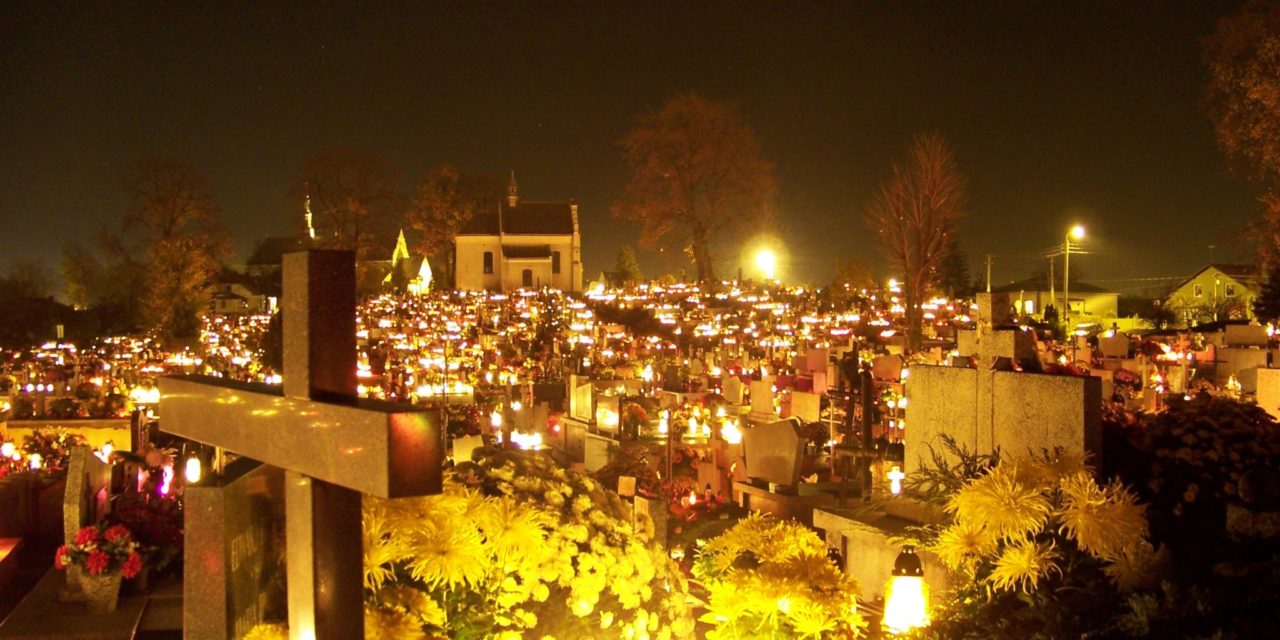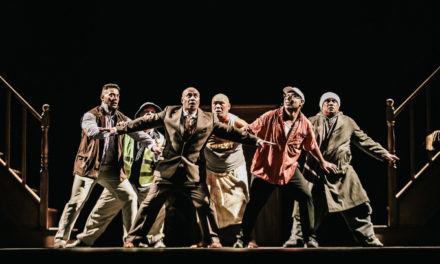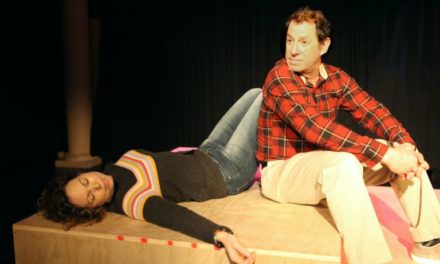It is noteworthy that the custom of banqueting the dead seems to be common to all pagan peoples, whether we be speaking of Homeric Greece, the Scandinavian countries, the Orient, or the far-off islands of the New World.
—Adam Mickiewicz, Dziady, Part II (trans. Charles S. Kraszewski)
If you were to drive through the roads of Poland on the first two days of November each year or fly low over its terrain, you would catch a magical sight—the glitter of thousands of candles aglow behind the gates of cemeteries across the country. These are offerings brought by Poles to lost loved ones for the Catholic All Saints’ Day and the consecutive commemoration of Zaduszki. An eastern relative of the Western European All Souls’ Day, Zaduszki is also heir to the Slavic tradition of dziady, or seasonal pagan rituals across Central and Eastern European countries that involved feasts in communion with the dead.
This year, in Wrocław, November 1 was also host to an Afro-Haitian Vodou ceremony, performed by the visiting priest Joseph Auguste Louis and guests from Haiti in the lofty Old Bakery building as part of the Dziady Recycling Festival. The evening of ritualistic dance, music, and invocations of lespri—ancestral spirits—was led by Louis over a vèvè, or sacred design intricately inscribed upon the floor in flour. Such cultural and spiritual syncretism was a hallmark of the Recycling Festival, which figured in the program of the international Theatre Olympics held this fall in Wrocław, also designated as the 2016 European Capital of Culture.
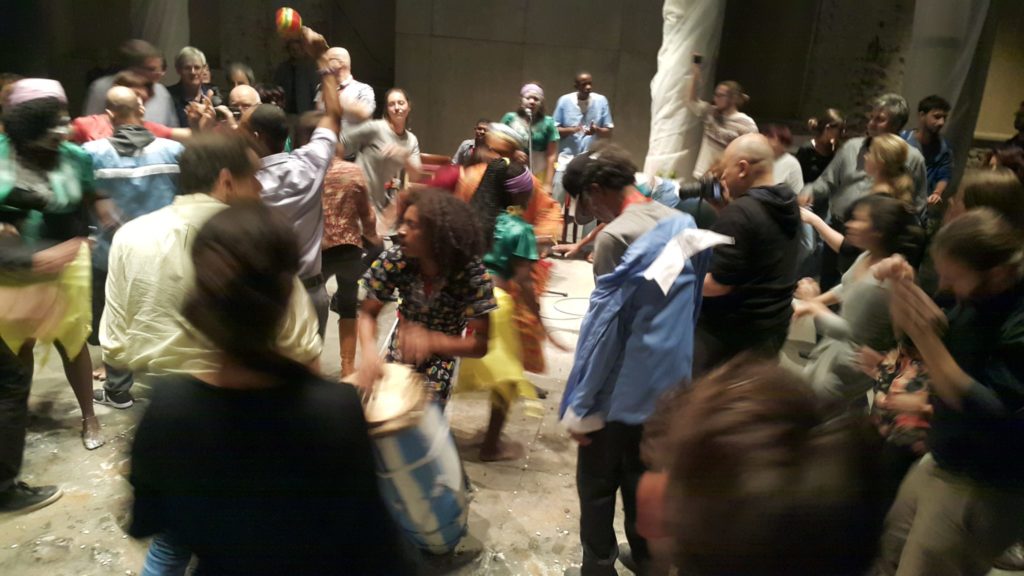
Afro-Haitian Vodou ceremony, Dziady Recycling Festival. Photo credit: Lauren Dubowski
The Recycling Festival’s point of departure was the iconic 19th-century drama Dziady, written by the Polish national poet Adam Mickiewicz over roughly a decade while in exile from Partitioned Poland. The play, which stages a dziady ritual in one of its four parts, is the foundational literary source for the Romantic view of the country as the “Christ of Nations,” whose tribulations would ultimately redeem the world—an idea that has been both taken up and sent up by many artists, writers, and others since. Professor Leszek Kolankiewicz, the director of the Recycling Festival, describes Dziady as a Polish “cultural blueprint” and “metasocial commentary.”
This year’s Theatre Olympics was also organized by the Grotowski Institute, the Wrocław institution named for that renowned 20th-century director whose search for a “Theatre of Sources” led him to explore liturgical traditions in countries including Haiti, India, Mexico, and Nigeria. Grotowski’s own 1961 production of Dziady shocked audiences with its rebellious approach to the revered text and unconventional staging, which brought the artists and audience together into the same physical space. In the spirit of Dziady and Grotowski, the Recycling Festival’s events expanded culturally and creatively, incorporating a panoply of approaches to memory, performance, and ritual.
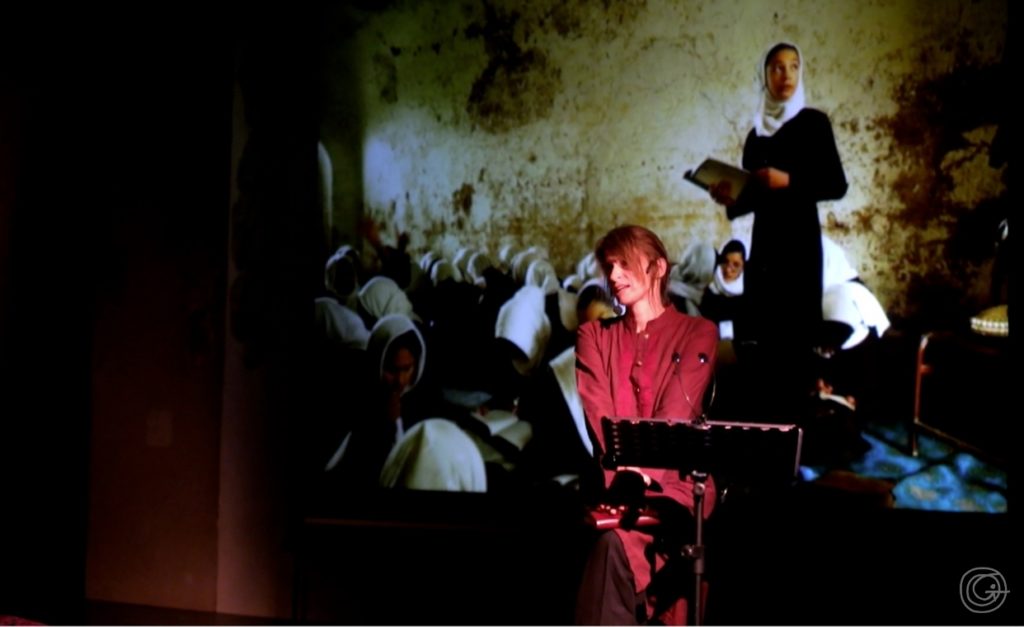
Monika Bułaj’s Auras: Performing Reportage, Dziady Recycling Festival. Photo credit: Francesco Cornello
The centerpiece of the festival was a series of seven commissioned performance “remixes” of major historical productions of Mickiewicz’s play—such as Kazimierz Dejmek’s, the cancellation of which sparked historic, nationwide protests in Poland in 1968—created by contemporary artists. Also presented were a number of discussions and lectures, an Afro-Brazilian Candomblé ritual, exhibitions of paintings and photographs from a variety of countries and cultures, and film screenings. Two productions of Dziady were featured as well: Michał Zadara’s with Teatr Polski—at 14 hours long, the first in Poland’s history to be performed without cuts—and Eimuntas Nekrošius’s from the National Theatre.
The full text of Dziady was recently translated into English for the first time ever by Charles S. Kraszewski as Forefathers’ Eve, published by Glagoslav Publications in October.
This post was written by the author in their personal capacity.The opinions expressed in this article are the author’s own and do not reflect the view of The Theatre Times, their staff or collaborators.
This post was written by Lauren Dubowski.
The views expressed here belong to the author and do not necessarily reflect our views and opinions.

